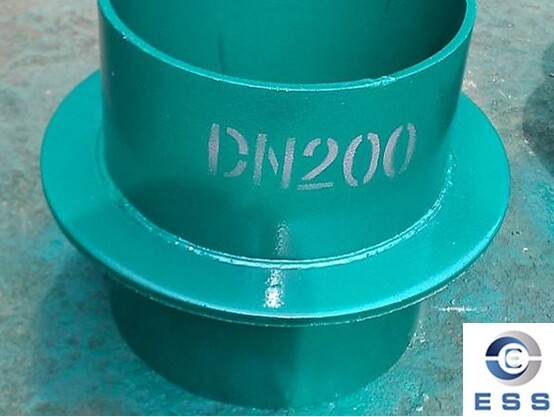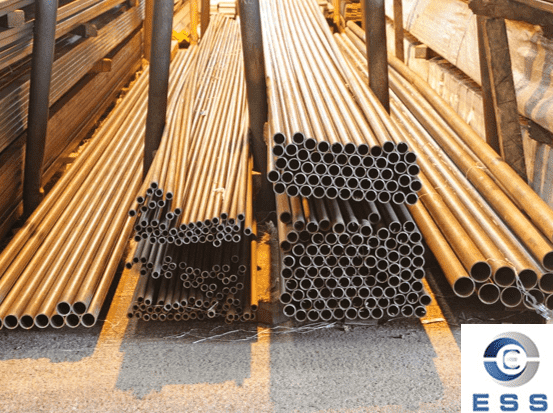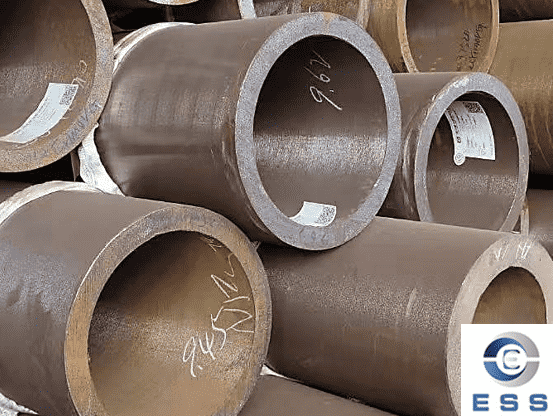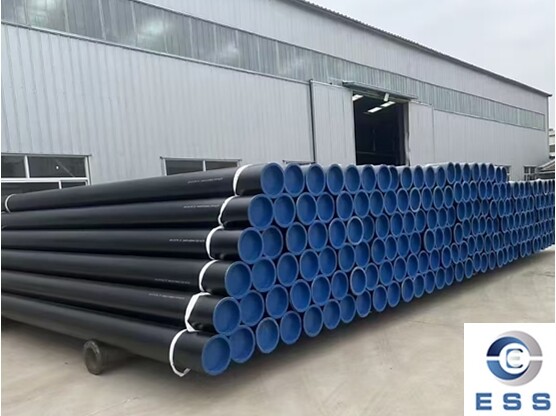
Steel casing pipe is a vital tool used in
drilling and oil and gas development. It consists of a steel pipe on the
outside and a casing
pipe on the inside. It primarily supports the wellbore, maintains the
wellbore, and limits the leakage of oil, gas, and groundwater.
Steel casing pipe is typically made of
high-strength steel, with common materials including carbon steel, alloy steel,
and stainless steel. These materials offer advantages such as high strength and
corrosion resistance, making them suitable for use in harsh environments.
Due to its unique structure and
performance, steel casing pipe has a wide range of applications in various
fields and situations. The following is a detailed summary of the uses of steel
casing pipe:
Construction
1. Water Supply and Drainage Systems
In water supply and drainage systems, steel
casing pipe is widely used for pipes passing through walls, floors, and other
structural elements. It not only provides the necessary channel for pipe
installation but also effectively prevents water waste and leakage through its
excellent sealing properties.
2. Electrical Systems
Steel casing pipe also plays an important
role in electrical systems. They are used for routing electrical wires, cables,
and other electrical equipment through conduits, protecting them from
environmental damage and ensuring the safe and stable operation of the
electrical system.
3. HVAC Systems
The piping systems in HVAC systems need to
pass through walls, floors, and other structural components. Steel casing pipe
provides convenient passage for these pipes and ensures the sealing and
stability of the piping system.
4. Firefighting Systems
In firefighting systems, steel casing pipe
is used for routing fire hoses, providing essential protection and ensuring
rapid response and effective firefighting in emergencies.
Drilling and Oil and Gas Development
1. Well Support
Steel casing pipe effectively supports the
wellbore, preventing it from collapsing and deforming during drilling, thereby
ensuring drilling quality.
2. Wellbore Maintenance
Steel casing pipe prevents wellbore
collapse and landslides, ensuring wellbore stability and safety.
3. Oil and Gas Leakage Control
Steel casing pipe prevents oil and gas
leakage and groundwater contamination in oil and gas wells.
4. Facilitating Production Operations
Production casing pipe can make production
operations smoother and more efficient, and has a wide range of applications in
oil and gas wells, water wells, and other fields.
Transportation
1. Subway Engineering
In subway construction, steel casing pipe
is used as a protective measure for tunnel walls. It enhances tunnel stability
and reduces the risk of tunnel collapse.
2. Highway Construction
In highway construction, steel casing pipe
is used for bridge abutments, guardrails, and road drainage systems. Its
advantages lie in its excellent compressive strength and long service life.
Hydraulic Engineering
1. Sluice Construction
Steel casing pipe is widely used in
hydraulic engineering projects, such as supporting bridges and pipelines in
sluice construction. Its corrosion resistance and strength ensure the stability
and safety of sluices.
2. Hydraulic Equipment
In hydraulic equipment, steel casing pipe
is used in pump wells and well equipment, performing functions such as
diversion, securing, and isolation.
Other Applications
1. Geothermal Wells, Coalbed Methane, and
Coalfield Mining
Steel casing pipe also has a wide range of
applications in these areas, primarily for supporting and protecting well walls
and preventing groundwater and gas leakage.
2. Enclosure and Insulation Materials for
Plastic Windows and Doors
Steel casing pipe can serve as enclosure
and insulation materials for these products, providing excellent sealing and
thermal insulation.
Summary
In summary, steel casing pipe, due to its
unique structure and properties, has a wide range of applications in
construction, drilling, oil and gas development, and many other fields. These
applications not only demonstrate the versatility and practicality of steel
casing pipe but also strongly support its widespread application across various
industries.
Read more: A Comprehensive Guide To Steel Casing Pipe or One-Piece vs. Split Steel Casing Pipe













 Eastern Steel Manufacturing Co.,Ltd not only improve product production and sales services, but also provide additional value-added services. As long as you need, we can complete your specific needs together.
Eastern Steel Manufacturing Co.,Ltd not only improve product production and sales services, but also provide additional value-added services. As long as you need, we can complete your specific needs together.










